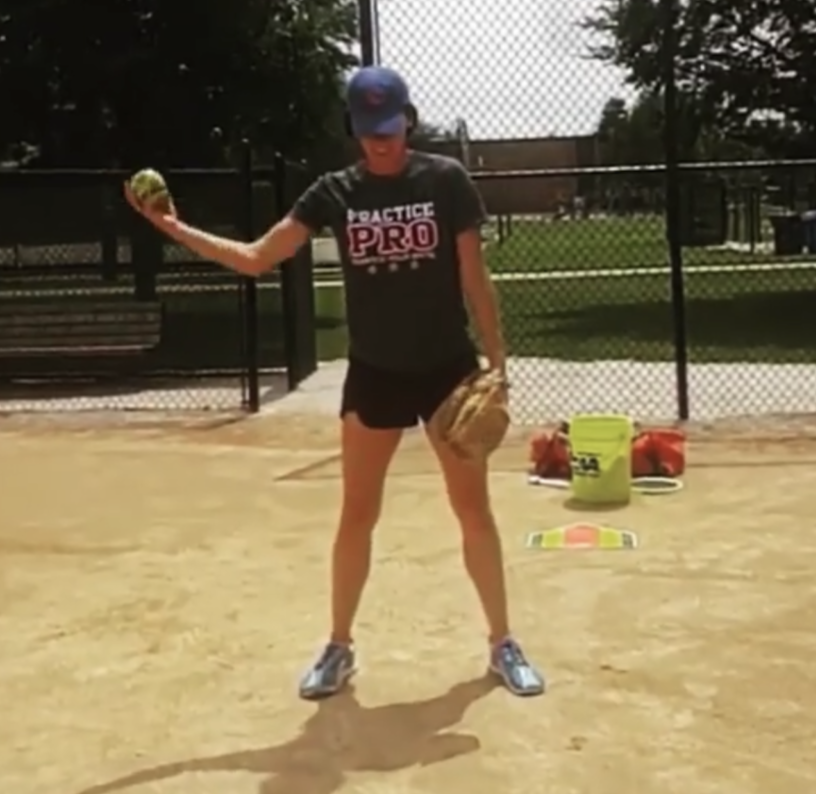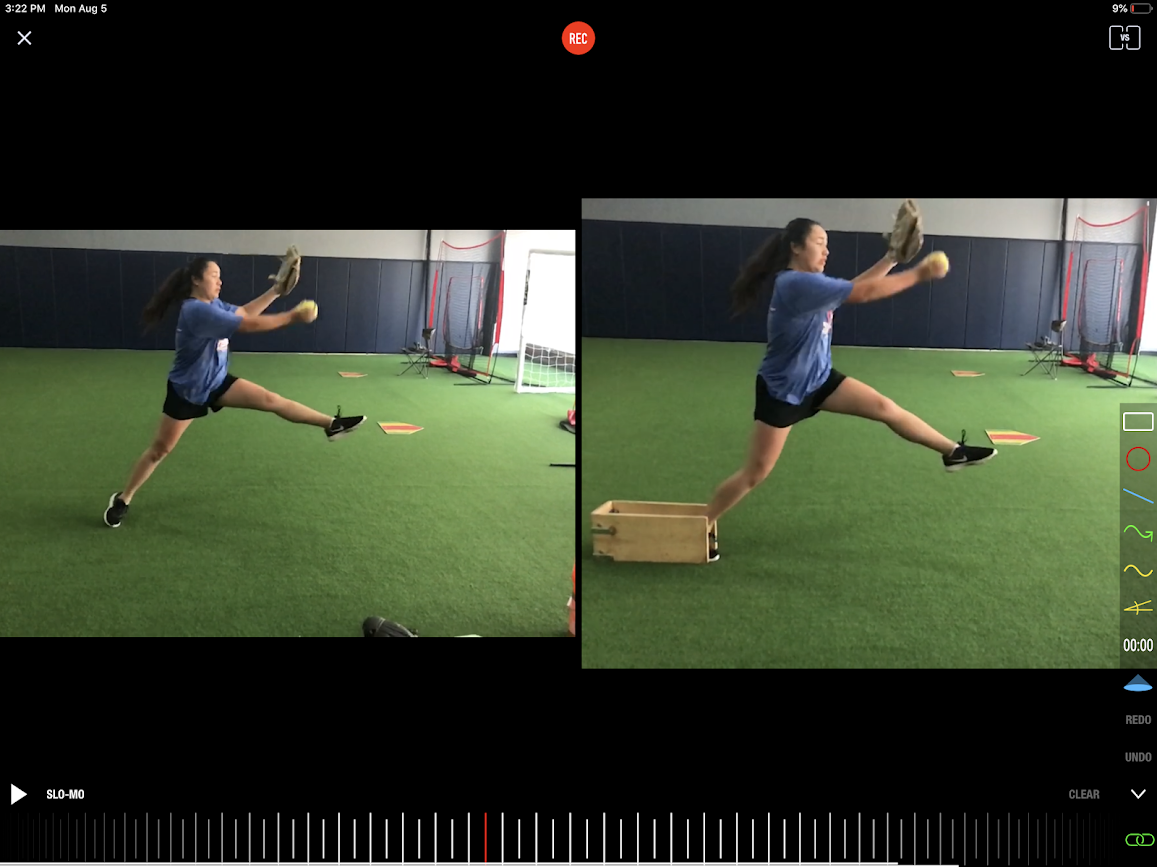7 Terms Your Instructor Wishes You Knew About Pitching
/If you haven’t already, you’ll come across these terms in your pitching journey. These terms explain 90% of the main mechanics you and your daughter will learn throughout the upcoming years. If you can accomplish these positions you will have become an advanced pitcher prepared to perform at the highest level. In Practice Pro terms, you’d be a Level 4 pitcher. You’d put yourself in a position to throw hard and execute all movement pitches, and deliver the ball in a consistent manner. Study up!
Stacked
At the point of release, if mechanics are performed to maximum efficiency and power, a pitcher's hand, ball, drag knee, and shoulder will line up. Here I am next to a beginner. This is what 90% of beginners look like, including players who never had formal instruction (Caitlyn’s much better now, I swear, I just couldn’t find her new video).






















